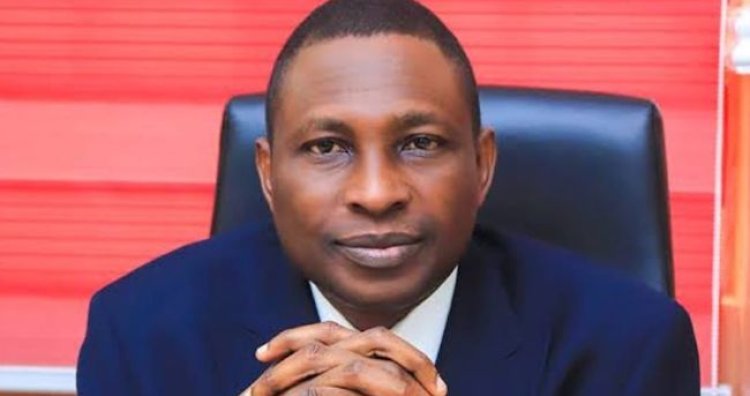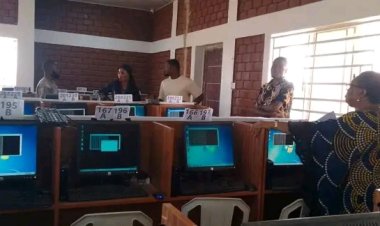Beyond the Crime: EFCC Chief Offers Scholarship to 17-Year-Old History Student Seen as Potential Bill Gates
The suspect, a 17-year-old history student in his second year of university, demonstrated his cyber skills by accessing the EFCC boss’s Bank Verification Number (BVN) and bank details without prior knowledge or consent.

In an unexpected turn of events, Mr. Ola Olukoyede, the head of the Economic and Financial Crimes Commission (EFCC) encountered a young internet fraud suspect with a talent that left the official torn between the law and potential.
The suspect, a 17-year-old history student in his second year of university, demonstrated his cyber skills by accessing the EFCC boss’s Bank Verification Number (BVN) and bank details without prior knowledge or consent. The young man’s ability to navigate the digital world was undeniable, but it was his actions that sparked a debate on the nature of crime and talent.
SUGGESTED: UNN Lecturer Prof Mfonobong David Udoudom Caught in Sex Scandal with Married Student

“I see crime in that, I also see opportunity in it,” the EFCC boss stated. The dilemma he faced was clear: prosecute the youth and potentially destroy his future, or find a way to redirect his talents for good.
The suspect, who supports his family and pays for his siblings’ education, showcased his abilities by claiming he could transfer 10 million Naira from the official’s account. The EFCC boss, however, saw beyond the crime. “Like I said, I saw a Bill Gates in that guy,” he remarked.
In a compassionate move, the EFCC boss offered to personally finance the suspect’s education if he could steer clear of illegal activities. This gesture extended to finding sponsors for the suspect’s siblings, highlighting the challenges faced by many young Nigerians today.
RECOMMENDED: UNN Suspends Mfonobong Udoudom Indefinitely Amid Sex Scandal, Launches Probe
This story sheds light on the thin line between criminality and potential, raising questions about how society should deal with talented individuals who veer off the right path. It’s a narrative that calls for a balance between justice and empathy, punishment and rehabilitation.





